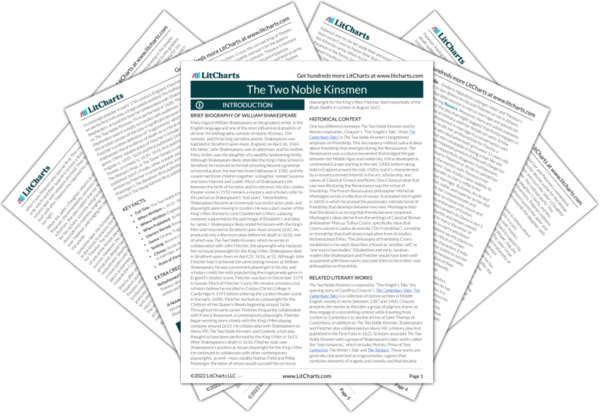In contrast, Palamon prays to Venus, the goddess of love. This scene reinforces the main difference between the two cousins: Arcite’s defining characteristics are his nobility and warrior ethos, whereas Palamon’s are his passion and romantic sensibility. The different gods they pray to also reinforce the difference that started their feud in the first place: Palamon waged war over his love for Emilia, and Arcite did so to defeat Palamon and claim Emilia for himself. Finally, Palamon’s praise of Venus reflects the play's stance on female power, which (in this context) lies in the ability to manipulate men with emotion. This is what Emilia and Hippolyta have done throughout the play: used their naturally merciful demeanor to persuade Theseus to be kind and understanding.
